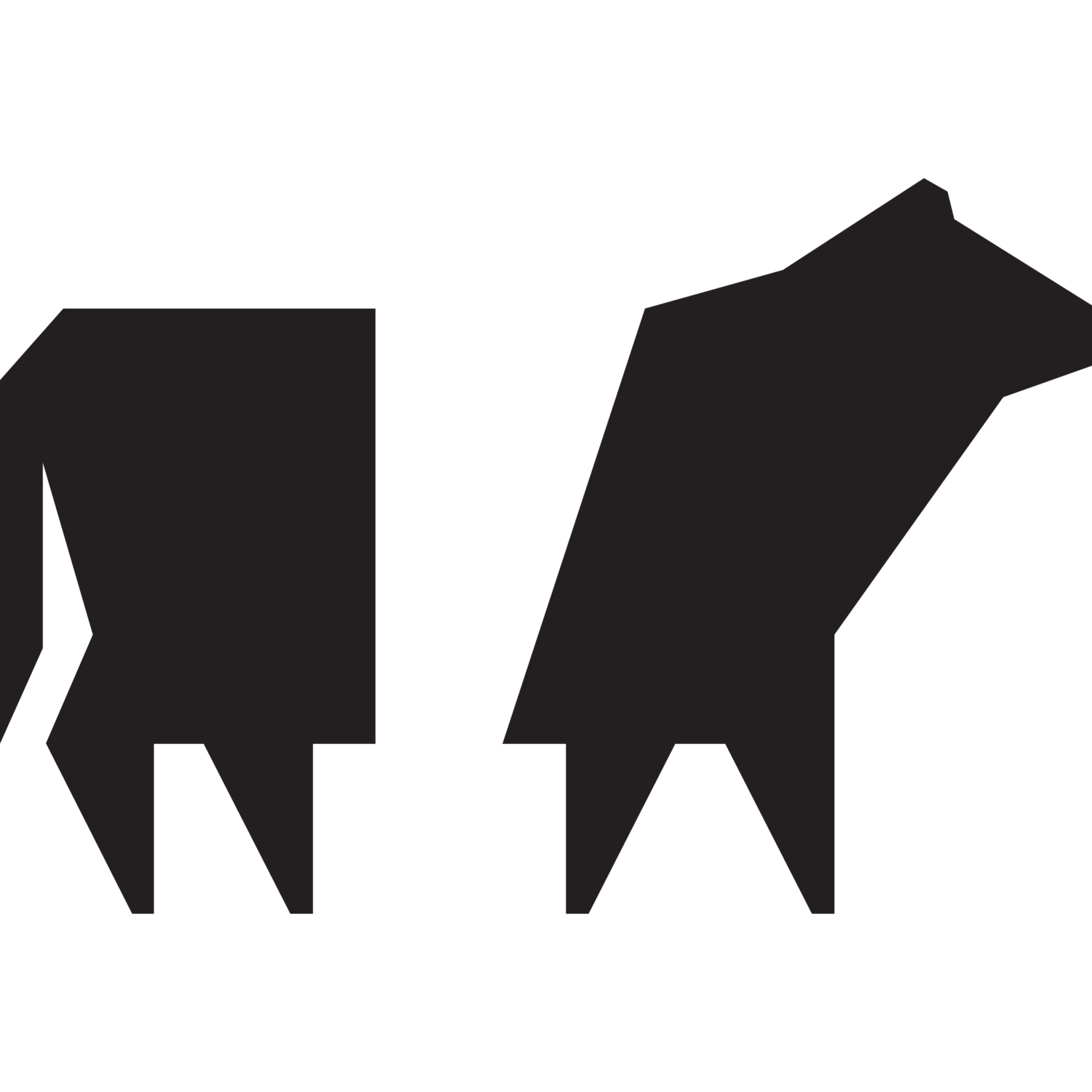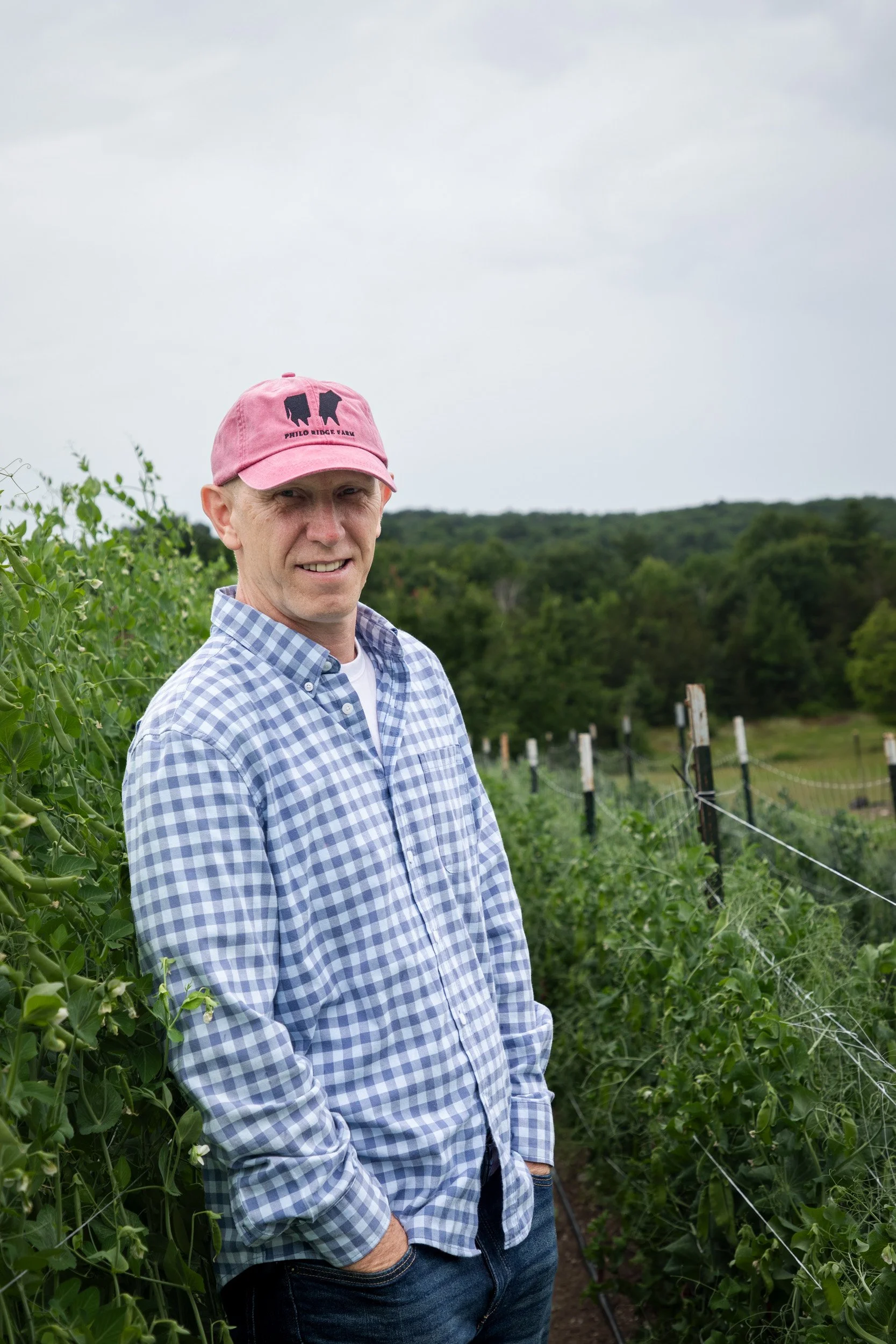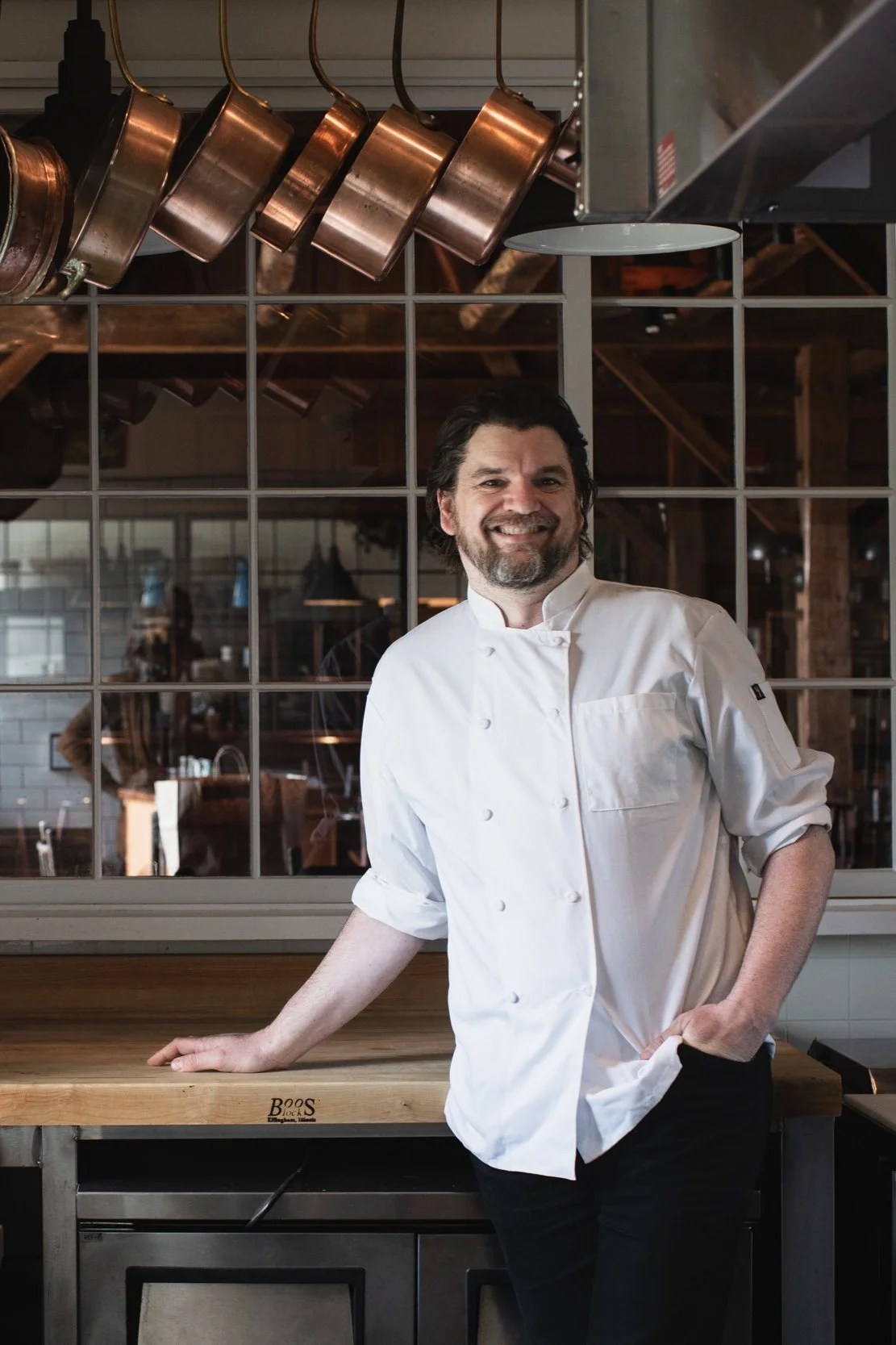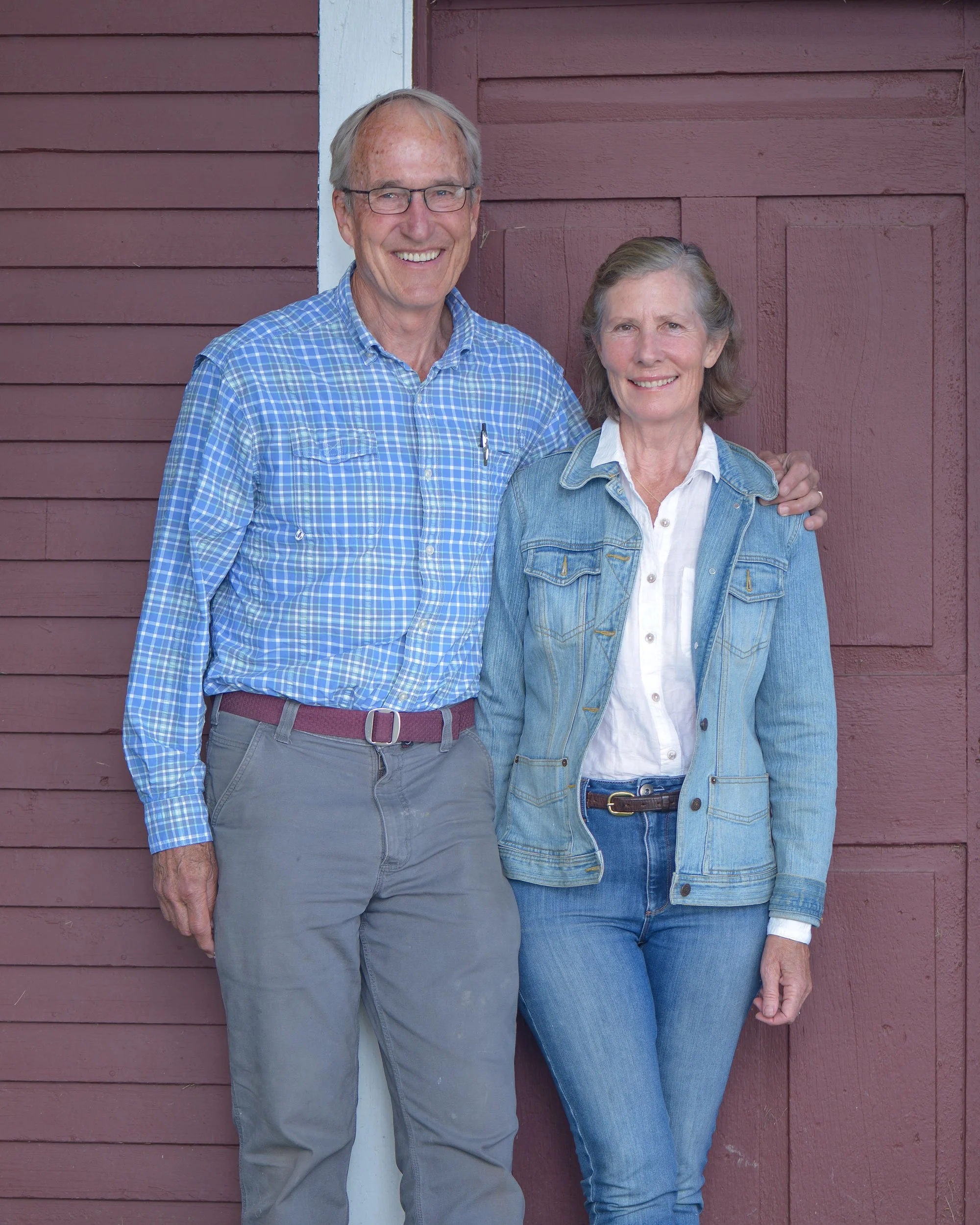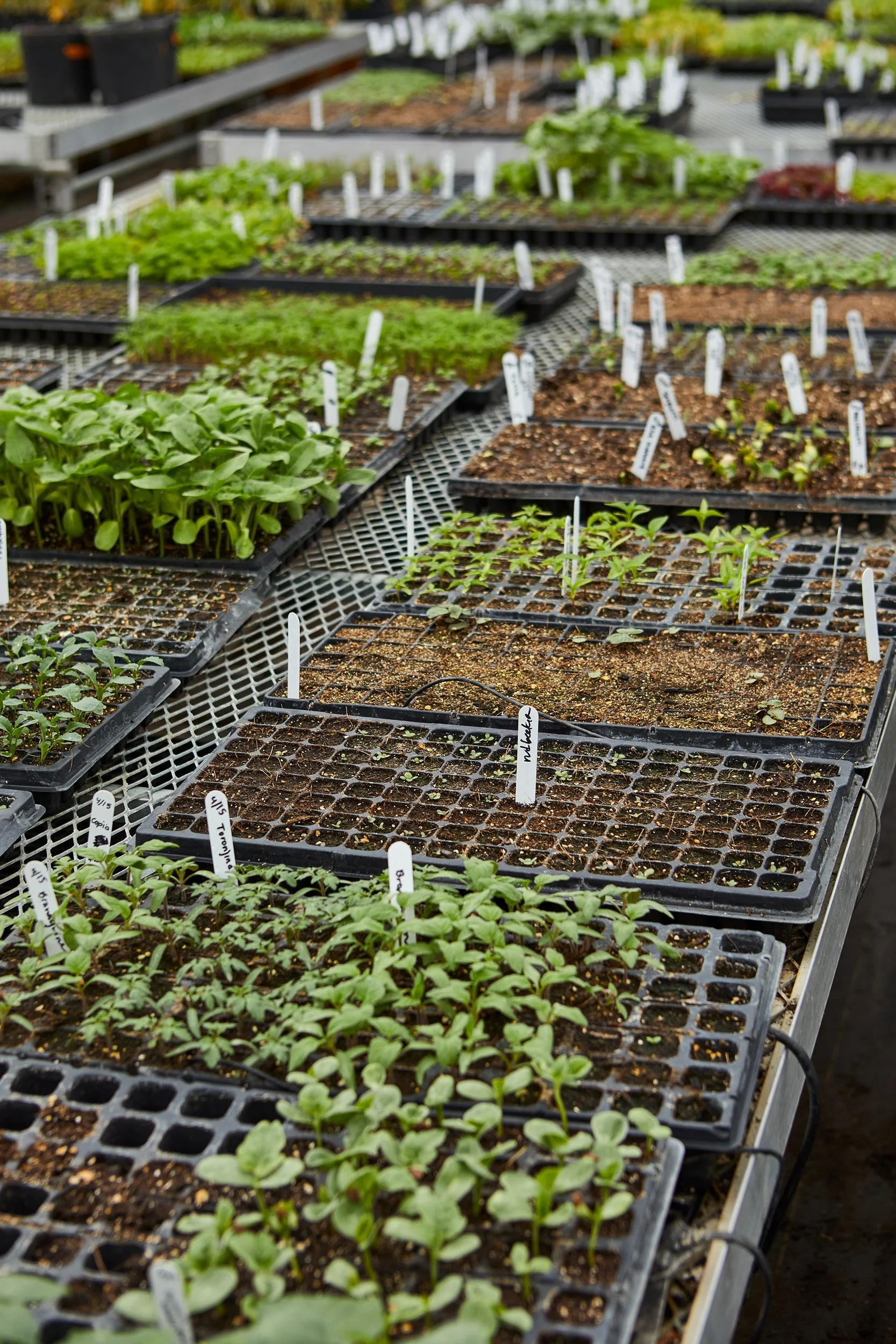Meet Bryan Flower, Our New Executive Director
Bryan Flower is our new Executive Director of Philo Ridge Farm, where he leads the organization’s work at the intersection of organic regenerative agriculture, culinary experiences, and community engagement.
Ecological Monitoring in Action: A CIG Field Update
Since the outset, evaluating the transition of Philo Ridge Farm’s land from conventional to organic regenerative methods has been a key focus. While the benefits of our practices may be apparent on the farm itself, we believe their true impact lies in being measurable, documented, and shared so that other farms can learn from and build upon our efforts.
Welcoming You Back to the Table This Summer
This summer, we’re reopening our Market and dining spaces and welcoming visitors back to the farm for an exciting new season of food, gathering, and connection.
The Next Course: Celebrated Chef Marc St. Jacques Joins Philo Ridge Farm
After an extensive national search to find the ideal culinary leader for our next chapter, Philo Ridge Farm is thrilled to welcome Marc St. Jacques as our Director of Food & Beverage and Executive Chef.
New Leadership Team Joins The Farm
We’re excited to share a new chapter unfolding at Philo Ridge Farm as we continue to grow into our nonprofit mission. This summer, we welcome two remarkable leaders to our team: Bryan Flower as Executive Director and Marc St. Jacques as Director of Food & Beverage and Executive Chef.
Meet our new Gardens & Growing Manager
We are delighted to introduce Jeremy LeClair as our new Gardens & Growing Manager at Philo Ridge Farm. He brings over a decade of experience in plant science, organic farming, and a deep-rooted commitment to sustainability.
Announcing the Philo Ridge Farm Foundation
After a transformative journey over these past years, we are excited to share that we have officially completed our transition to become a nonprofit organization, the Philo Ridge Farm Foundation.
Every Blade of Grass
Co-owner Peter Swift established Philo Ridge Farm’s grazing philosophy early on: It isn’t just about feeding animals—it’s also a tool for regenerating soil health. The cows and sheep at Philo Ridge Farm spend most of the year on grass, following a highly orchestrated grazing pattern designed to increase soil fertility.
Photo Essay: A Day In The Life Of An Ecological Researcher
Working closely with a cohort of 15 farms located in diverse regions across Vermont, the study’s goal is to provide the first rigorous state-wide analysis of the environmental, economic, and social impacts of regenerative farming. Participating farms are adopting soil health management practices including management-intensive rotational grazing (MIRG), supplemental seeding, and pasture nutrient amendment.
Healthy Farms, Healthy Soils
Over the years, we’ve become more adept at conducting research, learning how to coordinate our resources and collaborating with knowledgeable partners to establish best practices, get access to valuable tools, and standardize measurement taking to obtain more consistent, shareable results.
Pests, Parasites, and Pastures: A Livestock IPM Workshop
This summer workshop will give farmers an insight into ruminant pest and parasite management on their pastures and farms.
Friday Farm Stand Opens
It was a busy winter at Philo Ridge Farm, where our team has been working to keep the farm flourishing. From tending to crops and planting gardens to caring for our animals and making several infrastructure improvements, we are keeping our working lands working
A Letter To Our Community
When we started Philo Ridge Farm in 2012, our goal was to establish a thriving organic regenerative farm. After a transformative and deeply rewarding decade, we now want to ensure that Philo Ridge Farm will be a multigenerational community asset. To do this, we are organizing as a nonprofit which will allow Philo Ridge Farm to expand its focus to new research opportunities that will continue to support the future of food and agriculture in Vermont.
The Best Of The Old And The New
Through years of working together and a shared appreciation for hand craftsmanship, Diana and Snapp have developed a close relationship built on mutual admiration. We recently sat down with the two of them to learn more about Snapp’s work and how it fits into and influences the overall vision of the farm.
Seed Selection
Last year we seeded almost 300 varieties of fruits, vegetables, flowers, and herbs. Some were direct-seeded, others transplanted, and any that were propagated from cuttings were not even accounted for in that tally. On about 2 acres of cultivated fields, that’s more than 150 varieties per acre, plus the ~60 varieties of perennial flowers, shrubs, and trees that make up the perennial buffer zones in our Ridge Garden.
The Life of Wool
Form follows function, and in the case of our wool, beauty follows function. In much the same way we cherish the opportunity to practice nose-to-tail butchery, we also delight in the chance to fully utilize the pelts and hides of the animals we harvest.
How The Garden Grows
Earlier this summer, gathered around a bed of Speckled Hound and Porcelain Doll pumpkins, Brian chatted with the staff about how the garden is structured, how much the team experiments, and how they collaborate with the kitchen to produce a diverse menu year-round. Keep reading for highlights from the conversation.
The Alchemy of Grazing
Cows turn grass into meat. Anyone who has tried to form a burger out of lawn clippings knows this is no small feat. But cows do it with such seeming ease and nonchalance that it’s easy to pass it by without recognizing what it is: alchemy.
Bird and Bee Friendly Farming Initiative
When we were approached by Audubon Vermont to join their Bird and Bee Friendly Farming initiative, we gained a deeper understanding of how important the wetlands are for native bird species, and how helping birds creates a host of other land and climate benefits.
Spring Seedling Sale
With the recent warm days and rain, there is no mistaking that May has arrived here on the farm. Our seedling sale returns this year with certified organic starts for your garden. You can preorder your seedlings online and they will be available for pickup at the Market on Saturday, May 14 from 11am-4pm.
